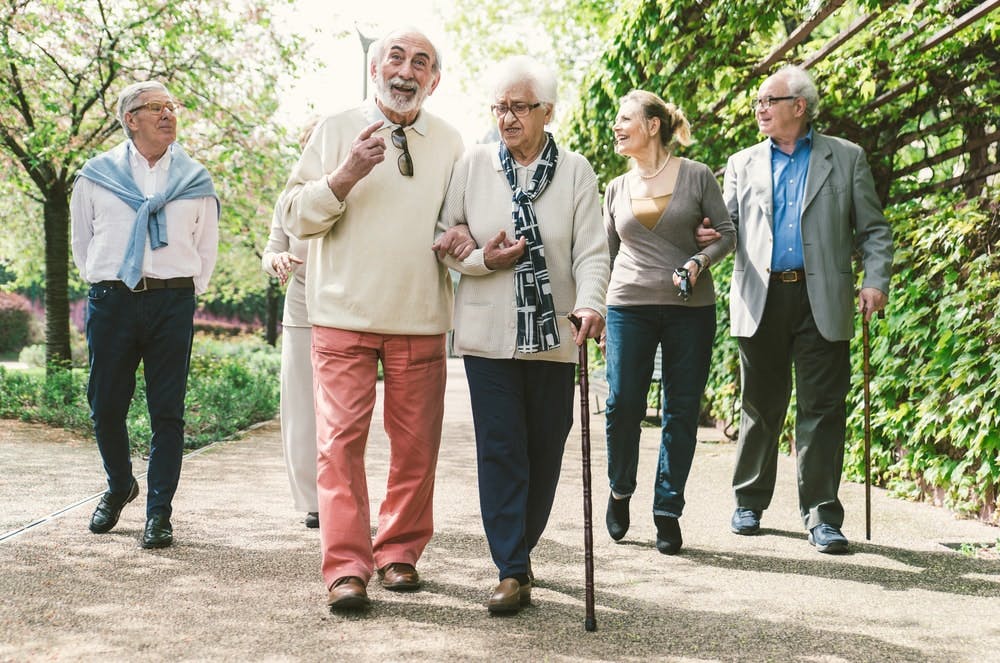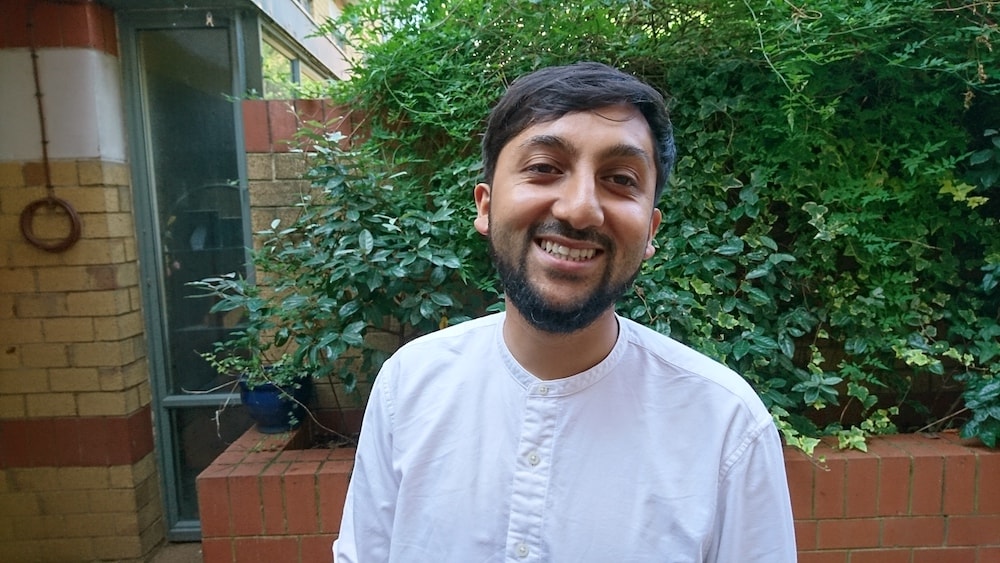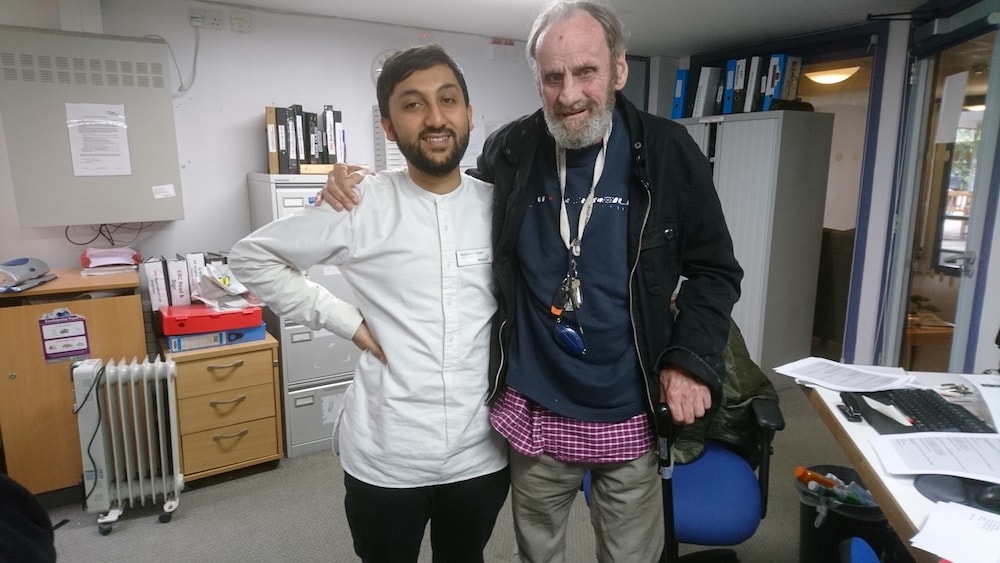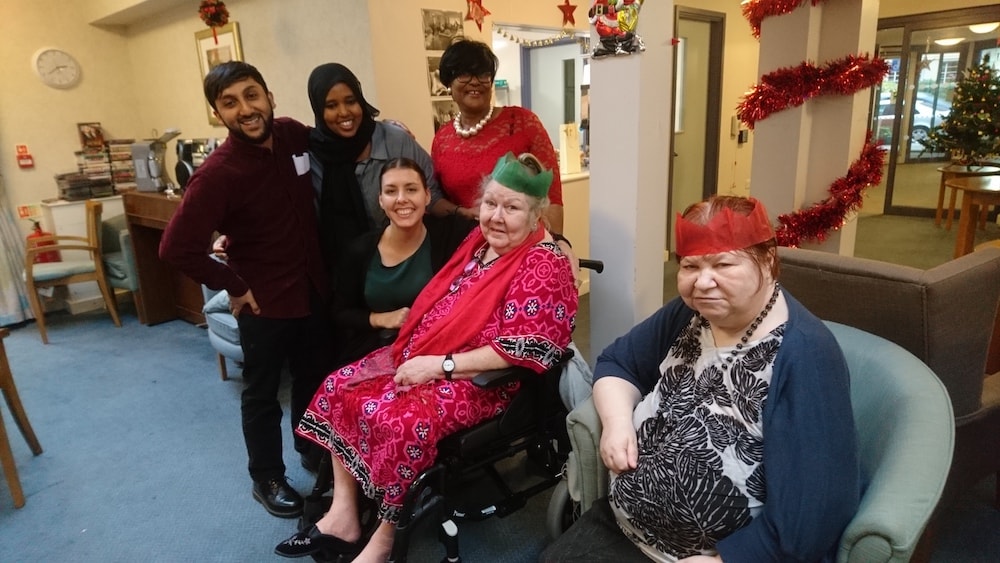The Moment I Realised... I Want to Help People with Dementia
updated on Apr 25, 2017

Mohammad Khan shares the life-changing impact volunteering as a ‘dementia befriender’ has had on his outlook
Mohammad Khan found himself at a loss after university, struggling to find a passion in his work, and looking for a deeper connection to his community. Volunteering with Age UK transformed his world – his outlook and his career. He also found himself re-evaluating what meant most to him in life.
Tell us a bit about yourself, and what first inspired you to volunteer.
I was born and bred in Camden, but my parents were originally from Bangladesh. Growing up, I wasn’t really sure what I wanted to do. I went to Warwick University and studied engineering, but to be honest I didn’t really have a strong interest in it. When I came back home to Camden, I did a bit of a soul-searching. It was then that I realised there was this whole world out there, and that’s when I started volunteering.
What drew you to Age UK?
I tried lots of different volunteering, but it was when I happened to be reading up on dementia that I saw an advert from Age UK Camden on dementia befriending and so I applied. We have this perception in our culture around older people being wise, and that you have a lot to gain from them. My parents always talk about it, but we didn’t have as much opportunity to experience that because not all of our family is here. I really wanted to do something where you’re building a relationship with an individual, so I began dementia befriending.
It was a really moving experience to be there for somebody in the last chapter of their life
What is dementia befriending?
Dementia befriending is where you’re matched with an individual who has dementia, and is isolated. With the isolation element, they have no regular contact with friends or family, so you end up being the primary face they see on a long-term basis, and you commit to visiting them once a week. The beauty of it is there’s no particular skill or any kind of person you need to be: it’s for anybody.
I was matched with Margaret, a Caribbean lady. You obviously try not to focus on the dementia element, but you’re aware that their memory or understanding is impaired in some aspects. As I started building a relationship with her, I realised how much I enjoyed it, and how much I was getting out of it myself. She was a very loud, outgoing, funny character – very forward, asking about your personal life, who you’re dating. Through meeting her, I realised that I wanted to help people for a living.
What emotional impact did volunteering with someone with dementia have on you?
As she got more unwell, it was a really moving experience to be there for somebody in the last chapter of their life. Obviously, it can be quite a powerful, emotional experience, but at the same time I realised there’s a beauty in being there as someone comes to their end. She gave me a lot of advice on what she found important in life, and the love she had for her husband who’d passed. I could feel the deep impact her love had on her, and even though she couldn’t remember everything, there was such a deep and powerful connection you could still see in her eyes.
While it was difficult when she died, I was really honoured to have been there for her. After a while I was placed with a man who lived in an ‘extra-care’ home – self-contained flats that have additional communal facilities and support staff. It was the first time I’d regularly been in a care-setting and I loved Ester Randall Court. It was such a positive environment. When I saw an opportunity to work there, I just went for it and began my career as a care worker.
What do you enjoy most about caring for those with dementia?
Without you there, that person might not be able to do simple things like having breakfast, getting up in the morning, or even going to the toilet. To have your basic needs supported is such an important element of your dignity and humanity. To be the person who facilitates that and makes it possible is such an honour. It’s more than a job. That really struck me.
Do you have any moments or people that stand out for you from volunteering?
With Age UK, I’ve volunteered with four people, and all four have had completely unique stories and lives. There was one man who was quite troubled, and had such vivid hallucinations that he’d describe things and I’d be paranoid myself that something was there. Working with people with dementia does have its challenges, but you learn a lot even from the difficult experiences, and they’re so rewarding.
Time is so important. Just being present is undervalued
The lady I visit now has early stage dementia, and she’s so independent and active. If you talk about being the best version of yourself, she is a great example of that. She’s mourning her husband, doesn’t have family, has had 14 operations, but she’s so motivated to walk and her diet is impeccable. You really feel the life-force is strong in her.
What advice would you give to someone caring for a person with dementia?
Time is so important. Just being present is undervalued. Having a shared history with someone is really powerful, and visiting them consistently builds that connection. They might not remember the places you’ve been or even your name, but there’s an emotional memory that’s really strong in people.
What would you say to anyone considering getting involved with volunteering?
I can’t advocate volunteering enough. It transformed my way of thinking, not just from a career point of view, but almost as an identity for myself. It’s so empowering in a mutually beneficial way. I’ve met so many wonderful people and heard incredible stories. It’s beyond words – it makes you value the smaller things and what you want from life.
You can find out more about Age UK and how you can support the charity at www.ageuk.org.uk. Follow them on twitter @age_uk




